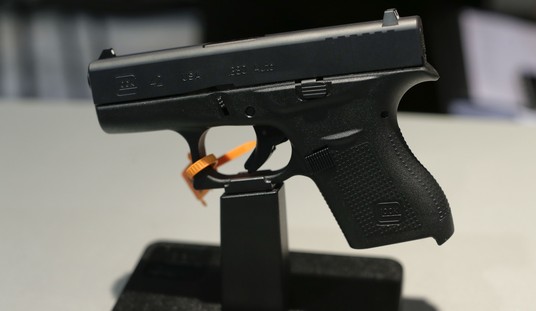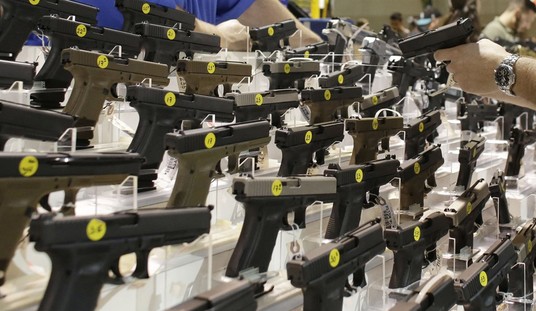AP Photo/Jeff Chiu
Gun rights advocates and gun grabbers rarely agree on much of anything. However, one group that both sides agree should probably not own firearms, though, are those “adjudicated as mentally defective.”
That’s the language in the law that says people with mental illness and mental disabilities, as determined by the courts, shouldn’t own firearms. Even a lot of pro-gun folks don’t want crazy people armed.
But the problem stems from the fact that sometimes, people who aren’t really “crazy” are caught up in this mess. For example, a New Jersey man is in such a situation.
Now, he’s trying to get his gun rights back.
Firearm Owners Against Crime filed a friend of the court brief in U.S. Middle District Court this past week in support of Victor W. Welshans, from the Jersey Shore area.
…
He says he voluntarily committed himself for treatment of depression, although documents, which he says are incorrect, state that the admission was involuntary.
The treating physician in his discharge summary stated Welshans was well enough for military duty and to return to work.
He spent 26 years in the military, including a year in Iraq in 2003 and 2004, and retired from the Postal Service after 33 years.
Lycoming County Judge Dudley N. Anderson in December 2016 restored his gun rights in Pennsylvania but the federal Gun Control Act of 1968 prevents him from buying the rifle.
FOAC in its filing cites court decisions it claims show a mental health examination and treatment does not trigger a prohibition on possessing a weapon.
It points out the Gun Control Act does not define “committed to a mental institution” while the Bureau of Alcohol, Firearms and Tobacco states it means a formal commitment by a court, board, commission or other lawful authority.
Even if those documents mentioned above were absolutely correct, this is still bogus.
Look, the law is written in that way to keep guns out of the hands of people who have chronic mental illnesses that represent a real risk to the population at large. A paranoid schizophrenic with a handgun can be terrifying — a guy who got depressed ages ago, not so much.
People can be committed for treatment due to an acute crisis who don’t represent a danger. Most people admitted for depression–be it voluntarily or involuntarily–represent no risk to anyone except maybe themselves. Unless it becomes a recurring thing, there’s no reason to render them permanently disarmed.
Hell, a case can be made that even if they are a risk to themselves, there’s still no reason to disarm them.
In an era when people are supposedly trying to erase the stigma from mental health issues, to make it OK to talk about them and discuss them, why would you still try to treat someone who got depressed ages ago like they’re a clear and present danger to all around them. That’s not how mental health works anyway.
I hope that Mr. Welshans get his rights restored. In the process, I hope he can overturn the absolute stupidity that led to this in the first place. He shouldn’t have to go to court.
Frankly, cases like this make it so some who need help may not seek it out due to fear of losing their constitutional rights. Tell me again how that’s a good thing?
I’ll wait.








Join the conversation as a VIP Member